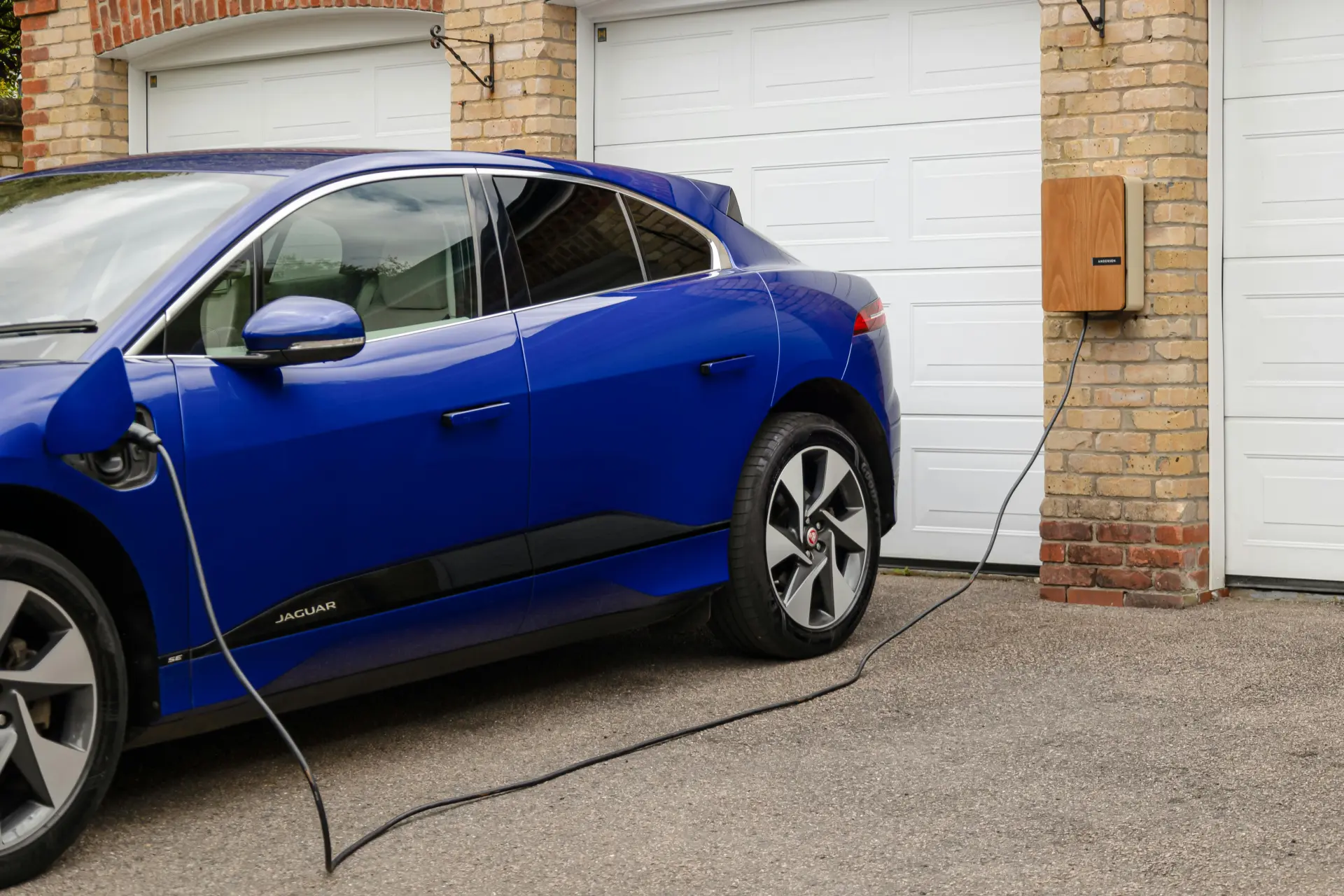EV charging points
With more and more fully electric and plug-in hybrid electric vehicles on the road we offer a complete solution for your EV charging requirements.
Get a free quote
Domestic Chargers
Our home chargers are designed to offer you the ultimate convenience and reliability you need to keep your EV powered and ready to go.
Get a free quote
Commercial Chargers
With the rapid growth of electric vehicle ownership, a charge point at the workplace will become increasingly important
Get a free quote
Speak to our team
Ready to get started? Speak to one of our team today and we will talk you through the options available to you. We’re here to help.
Get in touchEV Chargers – for home and work
Charging an electric car at home or in the workplace is the cheapest and easiest way to keep your battery topped up and can be integrated with your Solar PV and Battery Storage system to reduce costs even further.
Our Chargers
We believe in providing our customers with the very best in EV chargers. We work exclusively with trusted, leading manufacturers to provide you with high-quality chargers for homes and businesses.








Why charge your electric vehicle at home or at the office?
For many people, the most convenient way to charge an electric car will be at home or at the office rather than using a public electric charging point.
Having a home or office electric vehicle charging point means that the point is solely for your use meaning that you don’t have to rely on finding an unoccupied public charge point.
You can also charge your car at the time it is most convenient for you. For many people charging overnight when you can also benefit from reduced electricity rates makes sense as your vehicle is ready to go in the morning. If you have an electric work vehicle such as a van, charging overnight will help you to be ready in the morning or you can top up your vehicle during the day whilst working in the office.
And with the number of full electric and plug-in hybrid electric vehicles increasing each year having a home charger will be a desirable addition to any home.
Get a free quoteInstalling your EV Charger
Installing an electric vehicle (EV) charger at your home is a great addition to your home. We have a simple journey to help guide you on the EV charger journey, A dedicated EV charger point communicates with your electric vehicle, ensuring safe and efficient charging.
It also allows you to take advantage of the many low cost electric vehicle charging tariffs only available with a dedicated EV charging point.
When you contact us we will ask you a few questions about your home and existing electricity supply and arrange for a surveyor to visit your property to undertake a short 30-40 minute survey to check we have all the right information and check to see if any upgrades are required.
If your home requires any upgrades we will advise you. If your home requires a main fuse cut out upgrade, we will liaise with the electricity distribution network operator in your area to get your supply upgraded.